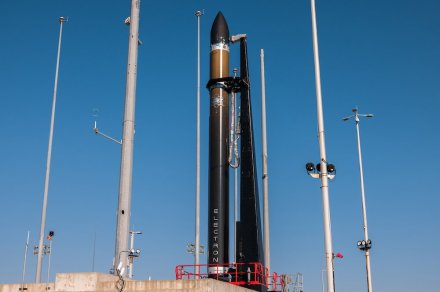[ad_1]

Rocket Lab’s debut mission from U.S. soil has been pushed to subsequent yr after sturdy winds pressured the group to name off the most recent launch try earlier this week.
The mission had already been delayed a number of instances attributable to administrative points with the Federal Aviation Administration. Poor climate circumstances additionally performed a component. The most recent delay was put right down to “sturdy upper-level winds” at Virginia House’s Mid-Atlantic Regional Spaceport inside NASA’s Wallops Flight Facility about 100 miles southeast of Washington, D.C.
“Continued sturdy upper-level winds tomorrow have dominated out the ultimate day of the launch window for our first mission from NASA Wallops,” Rocket Lab said in a tweet on Monday, including {that a} new window “is now scheduled to open in January.”
When it lastly will get to carry off, Rocket Lab’s workhorse Electron rocket will deploy six satellites for radio frequency geospatial analytics supplier HawkEye 360.
The flight may also see the primary check of NASA’s Autonomous Flight Termination Unit (NAFTU) software program, an automatic system designed to make sure public security throughout launch operations that might be made obtainable to all U.S. launch suppliers.
Rocket Lab’s first U.S. mission, known as Virginia Is For Launch Lovers, follows greater than 30 satellite-deployment flights from Rocket Lab’s predominant launch facility in New Zealand since 2018.
Opening its first U.S. launch facility marks a significant enlargement of Rocket Lab’s enterprise as the corporate seeks out new authorities and industrial clients whereas shifting towards a higher frequency of flights.
Rocket Lab may also use the Virginia facility for the primary launch of its rather more highly effective, next-generation Neutron rocket, probably in 2024. Much like SpaceX’s Falcon 9 rocket, the Neutron can have a reusable first stage that may land again on the bottom upright shortly after deploying the second stage to orbit.
Such a system will assist Rocket Lab to chop prices and supply aggressive costs to clients who need to use its satellite-deployment companies. The brand new rocket may also be able to interplanetary missions and even crewed spaceflight.
Editors’ Suggestions
[ad_2]
Source link


